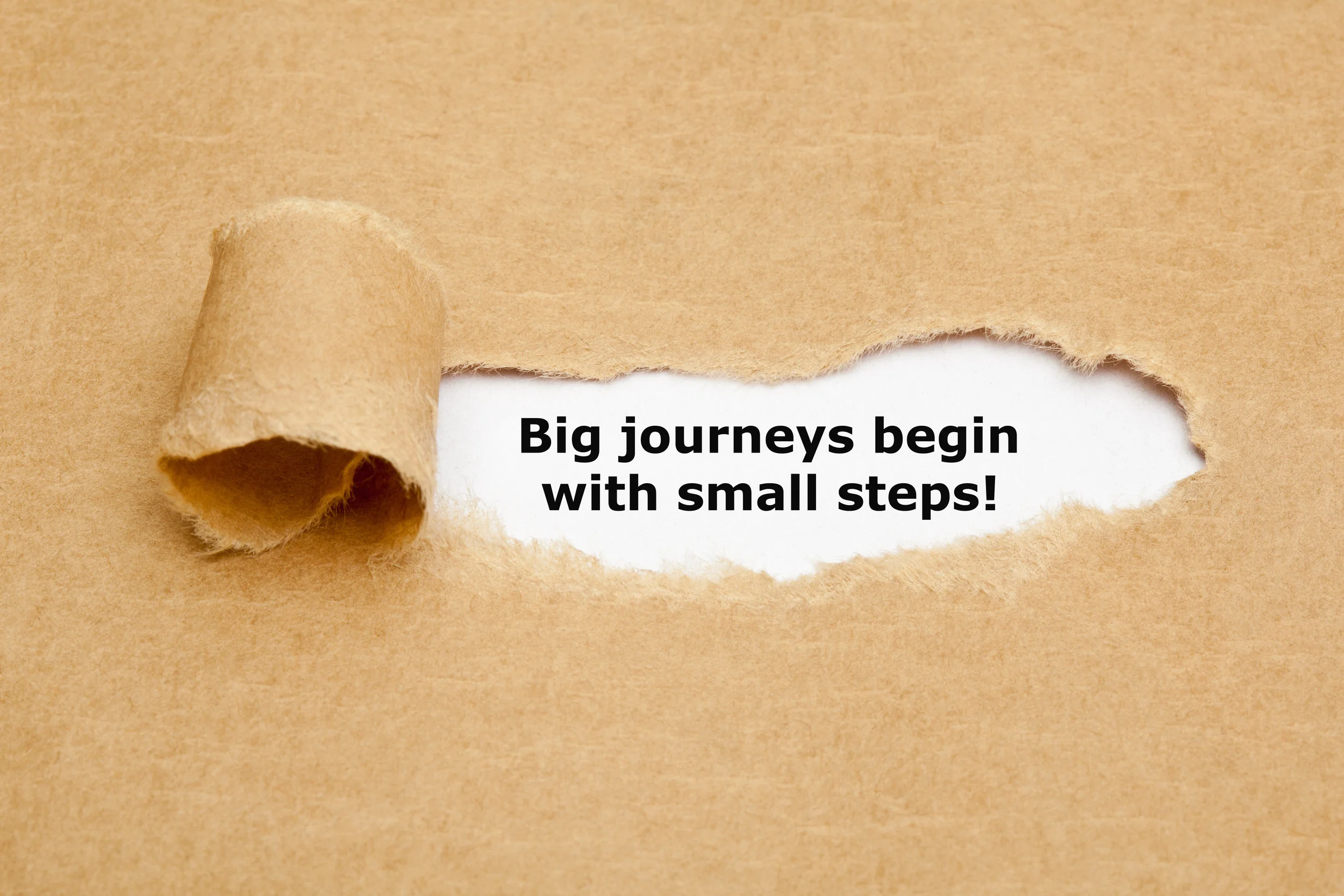How to stop your New Year goals falling by the wayside
Last week, we shared the simple, yet powerful, exercise we use to help us achieve our goals. Unfortunately, New Year goals all too often fall by the wayside before January is out because they require changes in our habits.
Habits, as we all know, are frustratingly resistant to change. But because they work unconsciously and automatically, we can tap into our in-built autopilot to bring about the changes we want.
Here are some of the techniques we use to create better habits:
1. Think small
The classic mistake people make when setting their goals is to bite off more than they can chew. Even relatively modest changes can be hard to sustain in the long-term. So, break your goal into small steps and pick something you have a reasonable chance of achieving. For example, scheduling 30 minutes once a week in your diary when you review your goals.
2. Mental contrasting
Researchers have found that people are far more likely to achieve goals where they believe they will be successful. That’s because they commit more strongly to plans they feel confident they can accomplish. They use a technique called mental contrasting which is described in more detail here. The key point here is to focus on those goals that you believe you can make happen.
3. Make specific 'if-then' plans
The types of plans we make are often rather vague like "this year I'll get fit" or “this year I’ll be more organised.” That’s fine as an overall aim but it's much more effective to make really specific plans that link situations with actions. For example, you might say to yourself: "If I buy petrol at the garage, as soon as I get in the van I’ll upload the receipt to Receipt Bank."
4. Repeat
Just like building up a muscle, habits develop by repeating the same action in the same situation. Each time you repeat the habit, just like a muscle it gets stronger. The stronger it becomes, the more likely you are to perform it without having to consciously think about it.
5. Adjust
Everyone is different, so what works for one person may not work for another. Changing our habits is no different. If your plan simply isn’t working, or doesn't feel right, then you probably need to adjust it. For example if you’re trying to eat more healthily, could you stock up on healthy snacks once a week and make sure they’re easily to hand?
6. Don't suppress your habits
A funny thing happens when we try to suppress our thoughts: they come back stronger and we end up thinking about them even more! It’s exactly the same with habits: if you try to push a thought of out of your mind, suddenly it will be everywhere.
7. Replace your habits
Habits can’t be suppressed; they have to be replaced by a new good habit. Teach yourself a new response to a familiar old cue. For example, if you want to stop scrolling your phone first thing in the morning, make sure you leave it in a place overnight where it’s not going to be easily to hand when you wake up.
8. Plan ahead
Getting in the habit of planning ahead is one of the best ways of achieving our goals. We're most likely to give in to old habits when we're feeling tired, low or hungry. Pre-commit to your new habit when your self-control is at its strongest. For example, if you want to go to the gym after work, pack your kit in a bag the evening before and put it by the front door, ready to pick up on your way to work.
Follow these steps, and little-by-little, step-by-step you’ll change your habits and achieve your goals.
What’s worked for you when it comes to changing habits? Let us know in the comments box below.

